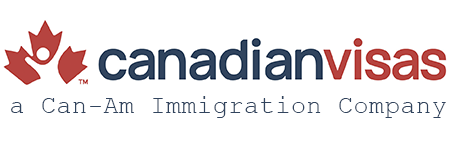
Jul 19, 2023 | Becoming a Sponsor, Blog, Citizenship, Express Entry, Family Immigration, Help with Inadmissibility, How To, Immigrate to Canada, Immigration, In the News, Spousal Sponsorship, Work Permits, Working In Canada
Family reunification is a fundamental cornerstone of Canada’s immigration strategy, and to further this objective, Immigration Refugees and Citizenship Canada (IRCC) has implemented a new measure: Open Work Permits are now available for outland applications. The aim is to facilitate the reunification of more families within the country. Under this new measure, spouses, partners, and dependents of permanent residents, Canadian citizens, temporary workers, and students who are already in Canada may now be eligible for an Open Work Permit.
Previously, open work permits were restricted to applicants under inland sponsorship or those already residing in Canada on a Temporary Residence Visa (TRV). However, the recent change extends eligibility for open work permits to those applying from outside of Canada (outland sponsorship).
To expedite the process, IRCC aims to process all spousal sponsorship applications within 12 months.
Eligibility for open work permits
Family members include spouses, common-law partners, conjugal partners, and dependent children over 18 years old.
Eligibility criteria for open work permits, as stated by IRCC, encompass the following conditions:
- The family member must have a valid temporary resident status, maintain their status, or be eligible for restoration of status.
- The sponsored party must have the same residential address as their sponsor in Canada when applying for the open work permit.
IRCC public policy allows officers to grant an open work permit to foreign nationals who meet any of the following conditions:
- They are the principal applicant with a submitted permanent residence application under the spouse or common-law partner in Canada, or as a spouse, common-law or conjugal partner under the family class, which has been accepted for processing by IRCC.
- They have submitted a work permit application for a maximum duration of two years.
- They are the subject of a sponsorship application submitted by their Canadian citizen or permanent resident spouse, common-law or conjugal partner.
- They have the same residential address as their sponsor in Canada at the time of the application and possess valid temporary resident status in Canada or have applied for restoration of status.
Alternatively, open work permits may also be granted to dependent children who meet the following conditions:
- They have been included as an accompanying family member in the application for permanent residence.
- They have submitted a work permit application for a maximum duration of two years.
- They have the same residential address as the principal applicant and their sponsor in Canada at the time of the application and possess valid temporary resident status in Canada or have applied for restoration of status.
Family reunification is a top priority in Canada.
This initiative was announced on May 26 by Immigration Minister Sean Fraser. Along with open work permits for outland spousal sponsorship, other family reunification measures were introduced, such as:
- Faster processing times for spousal applicants’ temporary resident visas (TRVs)
- New, dedicated processing tools for spousal TRV applicants.
- Open work permit extension availability for open work permit holders expiring between August 1st and the end of 2023.
Minister Fraser expressed IRCC’s dedication to reuniting families expeditiously and enabling them to work and support themselves more swiftly upon arrival. This approach not only helps newcomers fulfill their potential but also strengthens Canada’s economy and social fabric.

Jul 19, 2017 | Blog, Immigrate to Canada, Immigration, In the News, Permanent Residency, Skilled Workers, Spousal Sponsorship, Student Visas, Work Permits, Working In Canada
There are many reasons why a person would choose to immigrate to Canada. Some people immigrate in hopes of living a better life and/or to give their children opportunities that may not be so readily available in their country. Some people immigrate because they live in a war-torn country and they fear for their safety and that of their family. Others have family already in Canada and they want to be close to them. Some people choose to immigrate to Canada with their spouse or partner. This process is called Spousal Sponsorship. Then there are those who come to Canada to gain valuable education and/or work experience.
When it comes to quality of life, Canada has most other countries beat. In fact, Canada was ranked #2 best country in the world and #1 in education. Just to compare, the US was ranked 7th best country and 7th in education. Canadians are also “the 6th happiest people in the world, while Americans lag behind at 13th.” And there is a reason why Canadians are so happy. They have universal healthcare, for one. And, relative to other countries, Canada has easier access to education / cheaper degrees, higher press freedom, higher economic freedom, and better prison and justice systems. Canadians also live longer, work less hours, take more days off, and earn more money than Americans. Wow. It’s true. The American dream has moved north.
Let’s talk about immigration policy. The main issue to consider here is that Canadian provinces, unlike US states, have the ability to set immigration policy. Immigration in Canada is a joint effort between the federal and provincial governments. Canada has a program called the Provincial Nominee Program (PNP), which allows provinces to choose who they bring in based on economic need. The PNP helps individuals and their families to apply for permanent residence based on set criteria developed by the individual provinces. This is good both for the immigrant, whose application for PR is fast-tracked by a provincial nomination, and for the province, as they are able to bring in workers to meet labor market demand. While many of Canada’s immigration programs focus on skilled worker immigration, the PNP allows provinces to select workers in any occupation, including low or no-skilled occupations, to meet the labor demands of the province. So, if you find yourself to not be eligible for any other economic immigration program, you may find success in one of the Provincial Nominee Programs.
Overall, Canada’s immigration policy is far superior to that of the United States. Canada welcomes immigrants based on merit, which means that individuals who receive permanent residence in Canada are typically well educated and highly skilled. Immigration to Canada is also easier and faster than US immigration for many people. So, if you are a young professional looking for better opportunities in a beautiful country, Canada might just be the best place to go. Or if you are a businessman or woman looking to expand your business or set up a new business, Canada is a great place to do this. Whatever your reasons are, our team of qualified immigration consultants can assist you with all of your immigration needs. To start, take our free online assessment and find out if you qualify for one of Canada’s many immigration programs. If you have any immigration questions, contact us for a consultation today.

May 17, 2017 | Blog, Citizenship, Family Immigration, Featured, Immigrate to Canada, Immigration, In the News, Permanent Residency, Spousal Sponsorship, Student Visas, Temporary Foreign Workers, Tourist Visas, Work Permits, Working In Canada
According to a U.S. News study, Canada was ranked the second best country in the world in 2017. U.S. News partnered with Y&R’s BAV and Wharton to rank 80 countries, based on several attributes, divided into nine (9) sub-rankings:
- Adventure (friendly, fun, pleasant climate, scenic, and sexy);
- Citizenship (cares about human rights, cares about the environment, gender equality, progressive, religious freedom, respects property rights, trustworthy and well-distributed political power);
- Cultural Influence (culturally significant in terms of entertainment, fashionable, happy, has an influential culture, modern, prestigious and trendy);
- Entrepreneurship (connected to the rest of the world, educated population, entrepreneurial, innovative, provides easy access to capital, skilled labor force, technological expertise, transparent business practices, well-developed infrastructure and well-developed legal framework):
- Heritage (culturally accessible, has a rich history, has good food and many cultural attractions);
- Movers (different, distinctive, dynamic and unique):
- Open for Business (bureaucratic, cheap manufacturing costs, corrupt, favorable tax environment and transparent government practices);
- Power (a leader, economically influential, politically influential, strong international alliances and strong military alliances); and
- Quality of Life (affordable, a good job market, economically stable, family friendly, income equality, politically stable, safe, well-developed public education system and well-developed public health system).
Coming in as the second best country overall after Switzerland, Canada was also ranked #1 in the Quality of Life sub-category and 4th in the Citizenship sub-category. With a great public health care system and strong education system, as well as being a safe and family-friendly country; Canadians can boast a high quality of life. Canada is also known for being welcoming to immigrants and accepting of the diverse cultures of all their citizens. Canada is a land of opportunities for many foreign nationals as well as a safe haven for refugees. It might even be said that the American Dream is currently alive in Canada. In fact, the United States ranked 7th overall behind the United Kingdom, Germany, Japan, and Sweden (ranked 3rd, 4th, 5th, and 6th, respectively). Canada also ranked second best country overall in the same survey done in 2016 (behind Germany) as well as #1 in Quality of Life and #2 in Citizenship.
In addition to the above-mentioned categories, Canada also ranked number one for Best Countries for Education, well above the United States (which ranked 7th). Canada secured this #1 spot because of its highly developed public education system and quality universities. All in all we can say that Canada is a wonderful place to live. No matter where in the world you come from, what your beliefs are, and what your future goals look like, Canada and its occupants welcome you with open arms.
Are you interested in exploring this beautiful country? There are so many opportunities for individuals and families looking to study, work, and live in Canada. Our team of experienced immigration consultants is here to help you achieve your dream. Maybe you want to come for a visit to see the sights or to visit family. Perhaps you are looking for temporary status that allows you to work and /or study in Canada. Even if you are seeking a more long-term status, we can help. Canada places much value on the reunification of families. So if you have family members living in Canada, we can help with Family Sponsorship applications, including Spousal Sponsorship. From visitor visas to permanent residence to citizenship, our team can help you choose the best program to fit your needs. To get started, take our free online assessment or contact us today. We would gladly answer all of your questions and discuss your options for Canada immigration.

May 2, 2017 | Blog, Family Immigration, New Laws, Permanent Residency, Spousal Sponsorship
On April 28, Immigration, Refugees and Citizenship Canada (IRCC) announced the elimination of the conditional permanent residence provision for sponsored spouses and partners. This provision, put in place in October 2012, was meant to prevent fraudulent marriages entered into for the sole purpose of immigration. Under this provision, a sponsored spouse or partner of a Canadian citizen or permanent resident was required to live with their sponsor for two years if, at the time of applying, the couple did not have any children together and the relationship was less than two years old.
Effective immediately, sponsored spouses and partners will be relieved of this requirement to live with their sponsor and instead receive full permanent resident status upon landing. By getting rid of the conditional permanent residence provision, the government of Canada hopes to promote gender equality and battle violence. Under the conditional permanent residence provision, vulnerable spouses or partners may have felt the need to remain in an abusive relationship for fear of losing their status. While there did exist an exception to the condition that addressed violence, this does not mean that victims were aware of it or that no other factors might have prevented them from coming forward. Fear is a big factor in these situations and abuse is not always an easy case to present. As such, it is believed that sponsored spouses were put in a difficult position under this conditional status. With this change, sponsored spouses and partners can feel secure in their status without staying in a bad or dangerous relationship. As noted on the Government of Canada website, “any case that was under investigation for non-compliance with the cohabitation condition has ceased. However, cases involving marriage fraud will continue to be investigated.”
Violence is not tolerated in Canada. If you or someone you know is suffering from abuse or neglect under the hand of a sponsor or sponsor’s family, you can get help.
For more information about spousal sponsorship, click here or contact us to discuss your options for permanent residence.

Dec 9, 2016 | In the News, Processing Times, Spousal Sponsorship
On December 7th, 2016, in Brampton, Ontario, Canada’s immigration Minister, John McCallum announced that the federal government will be reducing the processing times of in-Canada spousal sponsorship applications to approximately 12 months. Up until now, processing times for inland spousal sponsorship applications were averaging 26 months. While the federal government works to reduce these times by half, the ultimate goal is to process these applications in 6 months.
Of course, this is news that is welcomed by thousands of applicants who have already submitted their applications, and those who intend on submitting an applications in the coming months. As the government has a target to welcome 64,000 new permanent residents through the spousal sponsorship program, the reduction of processing times is expected to last.
“We have listened to Canadians and are delivering results. Bringing families together makes for a stronger Canada. Canadians who marry someone from abroad shouldn’t have to wait for years to have them immigrate or be left with uncertainty in terms of their ability to stay. What we’re announcing today is a more efficient, more considerate process to reunite families”, said Minister McCallum.
The federal government will be updating the sponsorship package on December 15th and will have it available on the government of Canada’s website. Spousal sponsorship applications made from inside or outside of Canada are complex applications that require careful preparation.
While forms, checklists, and guides are always available to applicants, it is highly advisable to hire the services of an authorized representative to ensure a well and thoroughly-prepared application is submitted. Immigration Canada will be able to keep up with their expected processing times only when an application is prepared properly. Applications that have missing information, documentation or complex scenarios may experience longer than usual processing times.

Mar 17, 2016 | Spousal Sponsorship
 Canadians often meet Americans and fall in love. Of course, it also happens the other way around. So what happens if you and your spouse decide to live in Canada together?
Canadians often meet Americans and fall in love. Of course, it also happens the other way around. So what happens if you and your spouse decide to live in Canada together?
A Canadian citizen or permanent resident may be able to sponsor his or her spouse to Canada as long as they are married or in a common-law relationship (residing together for at least 12 consecutive months). In many cases Canadians work in the U.S. on valid status and live together with their spouses. This can be considered common-law as long as the relationship is genuine. There are two ways in which a Canadian sponsor may submit an application. There are pros and cons to each of the following options, but depending on the specific circumstances of the relationship, one option may be better than the other for the couple.
Applying from Outside of Canada
In many situations both the Canadian and American are living in the U.S. together. In this case, if the couple decides to reside in the U.S. together until such time that the permanent resident visa is issued, this option is best. The process begins in Canada to approve the sponsor which takes approximately 2 months. Once the sponsor has been approved, the application is forwarded to the Canadian visa office in either in New York or Los Angeles. It takes approximately (on average) about 12-24 months to finalize the application and be granted permanent residence. During this processing time there would be no restrictions on the American citizen traveling to Canada for a visit. Once the visa is issued the couple can travel to Canada together. Upon entry, the American citizen will be stamped as a permanent resident.
This outside of Canada process may also be the preferred choice if the Canadian citizen resides in Canada while the American spouse resides in the U.S. This option allows for fastest processing times while the American continues to work or study. It provides the American spouse with enough time to wrap up life in the U.S. and prepare for a permanent move to Canada.
Applying from Inside of Canada
This is an option that is preferred among couples who either have no intention to reside in the U.S. during the processing period of the application. Of course, this option requires that both the Canadian sponsor and the American spouse are in Canada together. Since American citizens are not required to apply for a visa prior to entering Canada, it is a popular option for those who come for a visit and decide to stay with their spouse in Canada. The current policy allows the foreign spouse to obtain a work permit while awaiting the decision of the sponsorship application. Since processing times in Canada are lengthy, approximately 24-27 months in total, a work permit can certainly come in handy.
The process begins with an application made to the Case Processing Center. If the application is prepared well and contains the appropriate application forms and their supporting documents, a work permit can be issued within 4 months. A work permit will allow the American spouse to take up employment without restriction. It will also allow for the individual to apply for and obtain provincial health insurance while working full time. During the first 4 months while awaiting the issuance of the work permit it is recommended that the American spouse does not leave Canada. While there are no regulations that would prevent the American spouse to from leaving Canada, it is highly suggested that he or she spends majority of their time residing in Canada. Short trips are allowed, but re-entry to Canada is always at the discretion of the officer at the port-of-entry. It is always recommended to spend as much time in Canada unless absolutely necessary to travel outside.
Immigration Canada will approve the permanent resident visa inside Canada at a local office where both the Canadian sponsor and the American spouse should be physically present.
Children born in the United States to a Canadian parent
If there are children born in the U.S. to a Canadian parent, the children may be deemed Canadian citizens by virtue of the relationship to the Canadian parent and would not be required to apply for permanent residence. However, they would require a citizenship certificate as proof of their Canadian status and to apply for a Canadian passport.
To learn more about sponsoring your spouse to Canada from the United States, we recommend speaking with one of our knowledgeable immigration consultants or lawyers who can help you take the necessary steps. Our Canadian immigration consultants and lawyers are experienced in handling all kinds of relationship situations and are best to provide accurate advice that pertains to specific situations.







 Useful Resources for Canada
Useful Resources for Canada
 Useful Resources for U.S.
Useful Resources for U.S.
 Our Local Immigration Services
Our Local Immigration Services